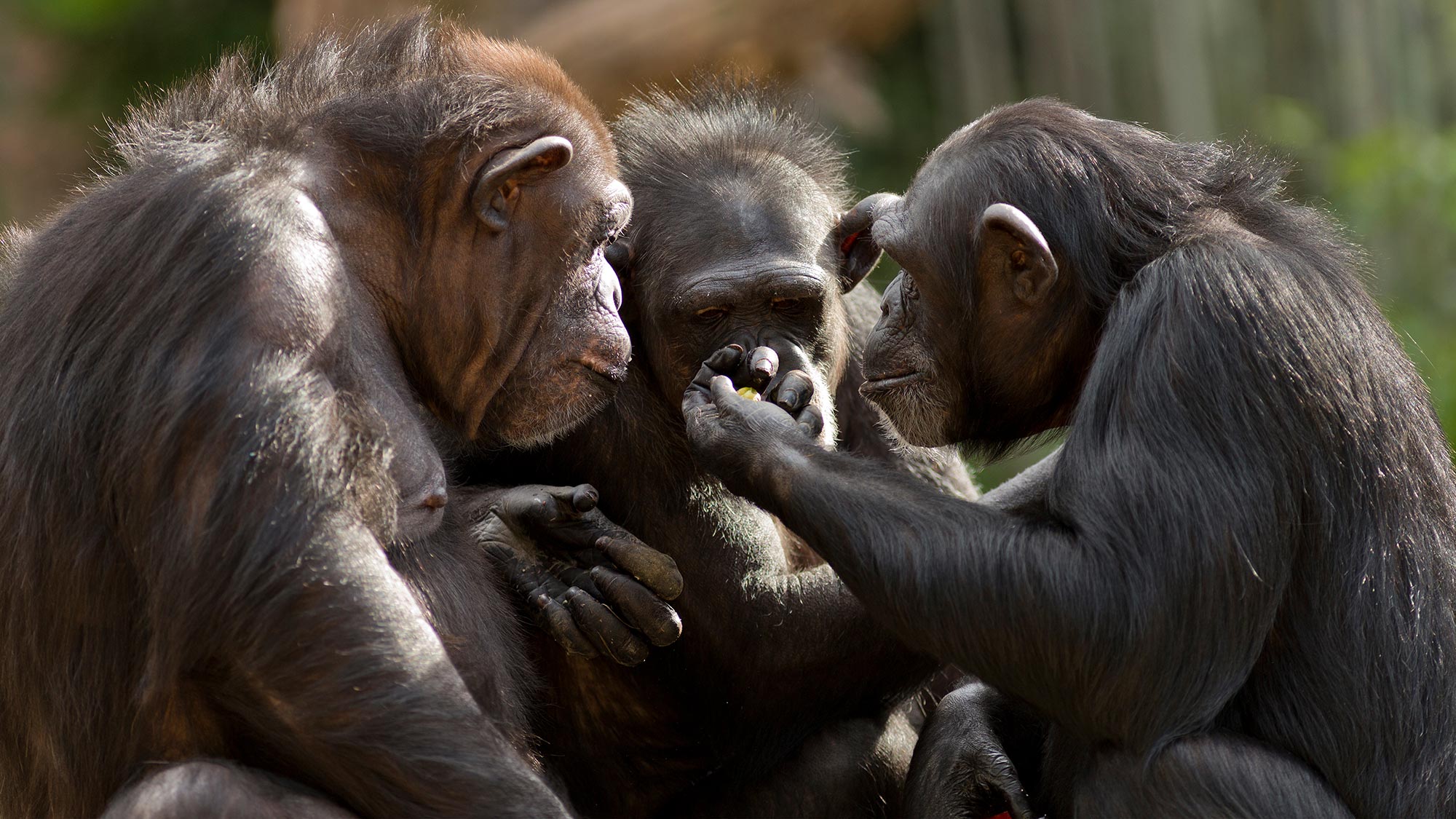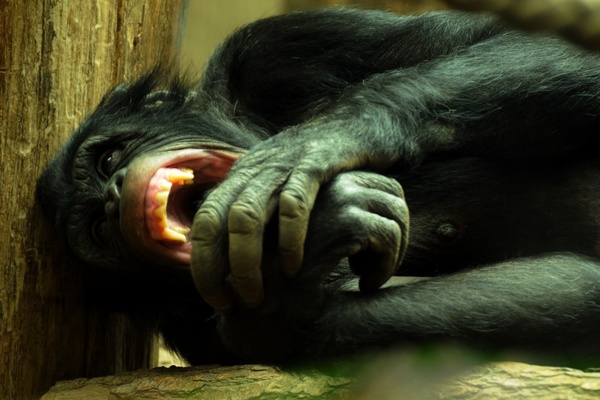


"And they did it so forcibly that our assumption is the bush babies would have been injured if there were always bush babies in the hollow," she continued.Īnthropologist and study co-author Paco Bertolani witnessed the single case in which a chimpanzee successfully extracted a bush baby with a spear. When hunting in the hollows, "almost without fail, every time they would withdraw the tool, they would sniff it or lick it, and then proceed to stab it in there again," said Jill Pruetz, an anthropologist with Iowa State University who led the research in Senegal. The ape then jabbed the spear into hollows in tree trunks where bush babies sleep. In each case a chimpanzee modified a branch by breaking off one or two ends and, frequently, using its teeth to sharpen the stick. No fewer than 22 times, researchers documented wild chimpanzees on an African savanna fashioning sticks into "spears" to hunt small primates called lesser bush babies. The discovery offers insight into the evolution of hunting behavior in early humans. If true, this would mean that prosocial behaviour has developed late in evolution, after our split with the other apes.For the first time, great apes have been observed making and using tools to hunt mammals, according to a new study. “Even after they demonstrated a clear understanding of the consequences of their actions, they remained indifferent to any effects these actions may have on others. “Indeed, given that the participants were just as likely to prevent access to food as they were to permit access, chimpanzees are no more altruistic than they are spiteful. ‘Helping’ might have formerly arisen in previous studies as a by-product of interesting tasks.”ĭr Claudio Tennie, from the University of Birmingham, said: “The results of these experiments combined demonstrate that the chimpanzees did not act in a manner that would produce benefits for others in a task where there was no perceived benefit to themselves. “However, the results of this study challenges that view. “There has been an appealing suggestion that the roots of human altruism extend down at least as far as our common ancestor with chimpanzees. One of the principle investigators, Dr Keith Jensen at The University of Manchester, said, “The evolution of social behaviour, and what drives individuals to act altruistically, is an important and active area of debate. Using two ingenious experiments, the team discovered the chimpanzees were no more likely to help feed each other as they were to block access to a box of peanuts. The team worked with a group of 16 Chimpanzees at the Ngamba Island Chimpanzee Sanctuary, in Uganda. Previous research implying helpful behaviour in chimps was likely to be a by-product of the way experiments were designed, they argue in Nature Communications. The animals, they find, are unlikely to take an interest in each other unless there is an anticipated benefit. The team from the universities of Manchester, Birmingham, and St Andrews, and the Max Planck Institute for Evolutionary Anthropology, say humans were unlikely to have inherited the trait of kindness from their primate cousins. A new study finds that unlike humans, Chimpanzees are entirely selfish creatures who act in their own interests, turning conceived wisdom on its head.


 0 kommentar(er)
0 kommentar(er)
